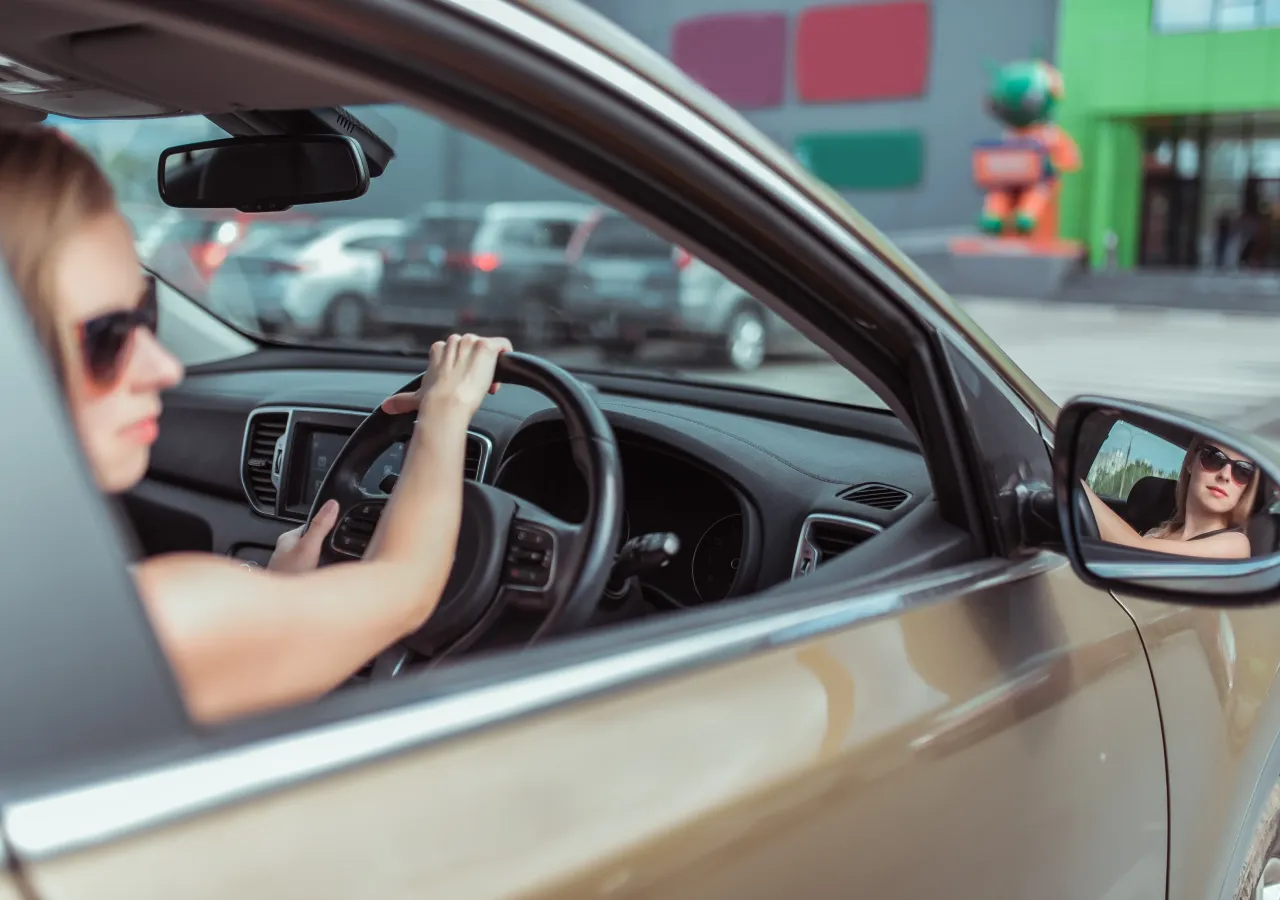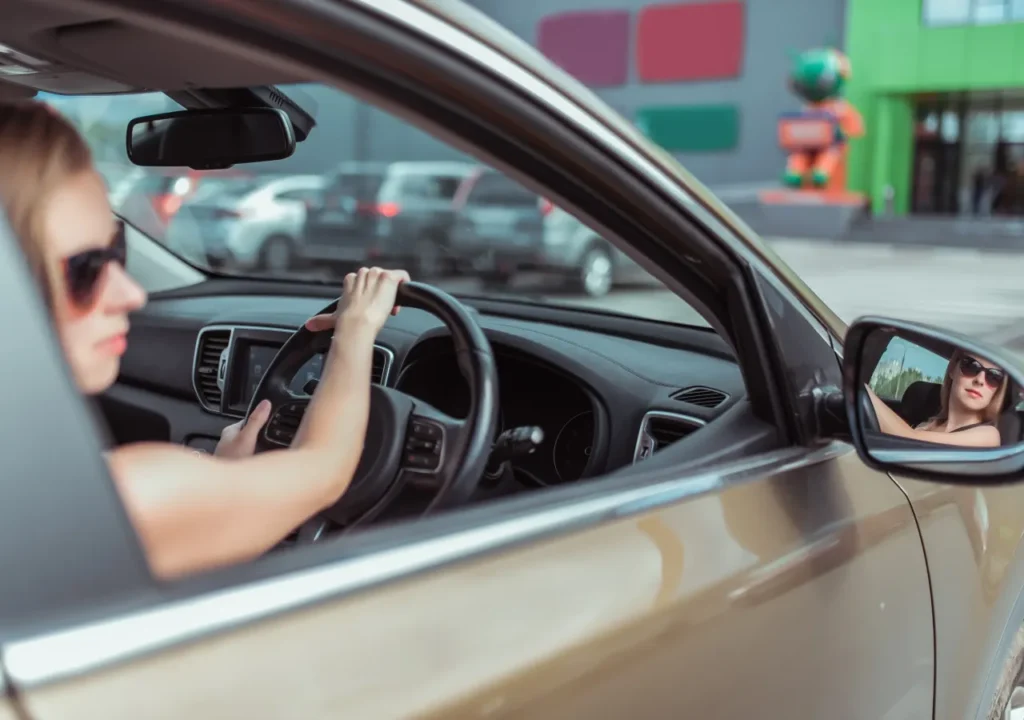Address
Macarthur Square, WOTSO, Level 2, Shop L080/200 Gilchrist Dr, Campbelltown NSW 2560, Australia
Work Hours
Monday to Friday: 9AM - 5PM
Weekend: Closed


When your drivers licence is suspended, you are not allowed to drive. If you are caught driving a motor vehicle after having your licence suspended in NSW, it is a serious offence, and you risk receiving a criminal charge.
Find out more about what happens if you drive whilst suspended, what options are available to reduce your suspension period, and what penalties apply.
Let’s take a closer look.
There are severe penalties for driving whilst disqualified in NSW, which may include hefty fines or imprisonment. The Road Transport Act 2013 contains the legislation regarding licences required to drive a vehicle in New South Wales. It also states the penalties for unlicensed driving.
Typically, penalties may be less severe if it is a first offence, but individuals who have committed a second or subsequent offence in the last five years, may face harsh punishments.
The maximum fine for a first offence is $3300 and up to six months in prison, with a mandatory licence disqualification period of six months.
For any second or subsequent offence within five years, a person will generally receive a more severe penalty. They may face a fine of up to $5500 and a maximum prison sentence of 12 months, with a 12 month disqualification period.
The court may impose several penalties with a drive whilst suspended charge. Charges may include a fine, imprisonment, community service or a good behaviour bond.
Apart from the inconvenience of being unable to drive, getting to work, running errands, and maintaining independence, several more severe consequences come with a traffic offence conviction.
A criminal conviction can negatively impact a person’s future. When looking for a new job, many employers request a police check to ascertain their character and criminal history. Some professions such as, security, child care, or nursing, will become unobtainable for people with a criminal history.
A criminal record can also impact a the ability to travel the world or migrate to another country, as many countries such as Canada, Japan, and the USA have strict screening measures for potential migrants.
When a licence is suspended by the police or RMS in New South Wales, it is possible to appeal the decision. Registration appeals must be filed with the local court within 28 days of receiving the notice.
A suspension notice will contain a date when the person can start driving again. After reaching the end of the suspension they can resume driving without having to reapply for a licence.
When a person is charged with driving whilst suspended, it does not always mean that they are guilty. Several possible defences may be applicable, and depending on the circumstances, if a court finds the explanation honest and reasonable, they may dismiss the charges. Some of the most common defences for driving whilst suspended include:
The court will consider all relevant factors before making a decision, such as driving record, and whether it was a first offence. They will also consider their character, ability to pay the fine and reasons for needing a licence, such as transport for dependents or requiring a licence for work purposes.
In some cases, pleading guilty may offer a more favourable outcome, for example, when a person pleads guilty, the court may discount the maximum penalty if there is evidence of remorse, and a less severe fine imposed. Or if a person pleads guilty early to a drive whilst suspended charge, the court has the discretion to grant a Section 10 dismissal. Section 10 is an option for appropriate candidates who have a good driving record and character. The person is found guilty but is not convicted, thereby receiving no penalties.
A person can only be charged with driving while suspended if the police can prove beyond a reasonable doubt that:
Criminal defence lawyers can provide valuable legal assistance to individuals charged with driving whilst suspended and may help to reduce the penalty and avoid a conviction.
There are several classes of unlicensed driving offences in NSW, which are treated very seriously by the court, and each has its penalties.
Disqualification is different to suspension. Once the drivers licence disqualification period has ended, a person will need to reapply for their cancelled licence. Whereas a suspended licence has a start and end date, at the end of the suspension period, the person may resume driving.
A suspended licence may be issued by police officers, for offences such as drink driving, speeding or dangerous driving. The roads and maritime services RMS can also suspend a licence for exceeding the demerit point limit and non-payment of fines.
If a person drives on a public road whilst suspended, they can be fined and face imprisonment.
A magistrate or judge may disqualify a licence as a part of the sentence for any traffic related offence. If a person drives on a public road when their licence is disqualified, they breach the court order and face a fine and imprisonment.
The police can issue an immediate suspension notice for a person who has committed a major traffic offence, such as high range drink driving offences, which means that a person is not permitted to drive their vehicle immediately.
Offences when a police officer can issue an immediate suspension notice include:
In Australia, demerit points help promote safe and responsible driving habits. When a person commits a traffic offence, part of the penalty may include demerit points. When a person accrues the maximum number of demerit points over a certain period, they may have their licence suspended. The length of suspension will vary depending on how many points have been accrued.
The number of permissible demerit points can vary depending on the type of licence, for example, full unrestricted licence holders have a higher limit of points than learner and provisional licence holders.
Three years after an offence, demerit points become inactive. Demerit points are reset after a suspension or a good behaviour period has ended. The points will remain on a driving record and may be used in court to determine the severity of future penalties.
There are several classes of unlicensed driving offences in NSW, which are treated very seriously by the court, and each has its penalties.
The consequences for driving whilst disqualified in NSW are severe. They may include fines or imprisonment. The penalties may be less harsh if it is a first offence, but individuals who have committed a second or subsequent offence in the last five years, may face severe punishments.
The police can issue an immediate suspension notice for a person who has committed a major traffic offence, such as high range drink driving.
In some cases, pleading guilty may offer a more favourable outcome. The court will consider all relevant factors before making a decision, such as driving record, whether it is a first offence. If a court finds that it was an honest and reasonable mistake, they may dismiss the charges.
Criminal defence lawyers can provide valuable legal assistance to individuals charged with driving whilst suspended and may help to reduce the penalty and avoid a conviction.
If a person drives whilst disqualified in NSW, they risk receiving a severe penalty. The court may impose several penalties which may include; a fine, imprisonment, community service or a good behaviour bond.
When a person is charged with driving whilst suspended, it does not always mean that they are guilty. Several possible defences may be applicable, and depending on the circumstances, if a court finds the explanation honest and reasonable, they may dismiss the charges.
After the suspension period has ended, a person may resume driving again.
The court may impose several penalties with a drive whilst suspended charge. Charges may include a fine, imprisonment, community service or a good behaviour bond.
The maximum fine for a first offence is $3300 and up to six months in prison, with a mandatory licence disqualification period of six months.
For a second or subsequent offence, within five years, a person may face a fine of up to $5500 and a maximum prison sentence of 12 months, with a 12 month disqualification period.
 Eleni Overell who has considerable experience in Driving Offences and Traffic Law is based in Campbelltown and serves the Macarthur and surrounding areas. Holding a Bachelor of Laws from Western Sydney University, her legal expertise spans Property Law, Criminal Law, and more. A member of the Law Society of New South Wales, Eleni also actively contributes to the community through her role on the NSW Legal Aid Panel. Call Eleni for a free consultation on Driving While Suspended or any other legal matter. 02 9605 7113
Eleni Overell who has considerable experience in Driving Offences and Traffic Law is based in Campbelltown and serves the Macarthur and surrounding areas. Holding a Bachelor of Laws from Western Sydney University, her legal expertise spans Property Law, Criminal Law, and more. A member of the Law Society of New South Wales, Eleni also actively contributes to the community through her role on the NSW Legal Aid Panel. Call Eleni for a free consultation on Driving While Suspended or any other legal matter. 02 9605 7113
The articles and content provided on this website are for general informational purposes only. They do not constitute legal advice or legal opinion.
For more information click here.
